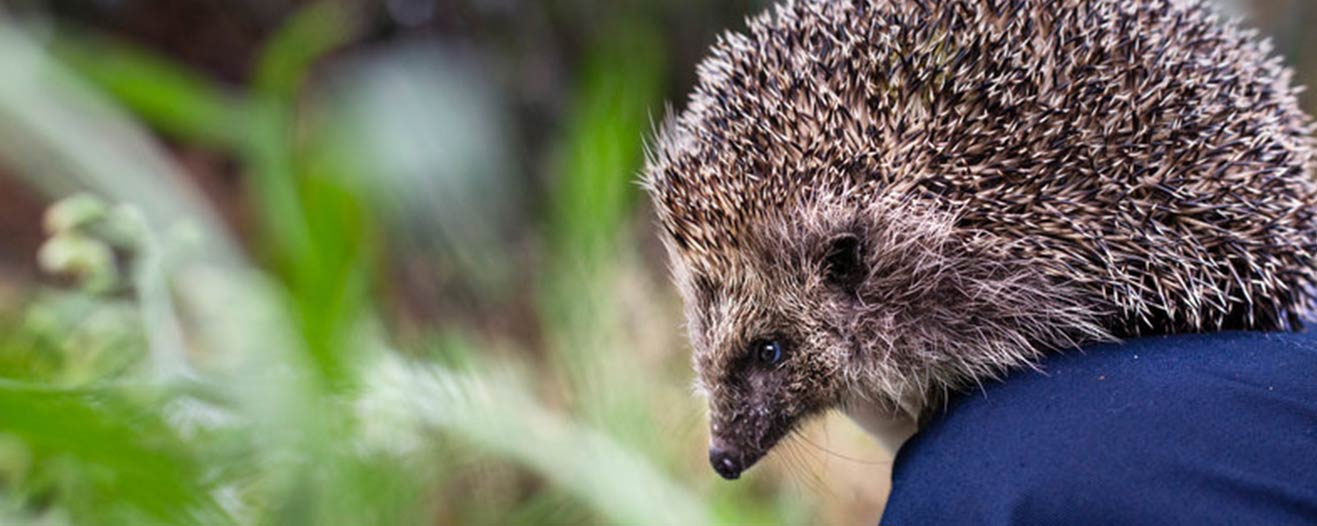- Find a Pet
- Advice and Welfare
- Ways to Give
- Get Involved
- What We Do
- Search
- My RSPCA
- Report a concern
- Sponsor
-
Colour modeVivid Calm

Safety guidance
We know that you love animals and want to help them when they need it - and we're incredibly grateful. There are many simple ways that you can help but it's important that you to do it safely.
Here is some guidance that will help you make safe decisions for yourself and the animal you’re concerned about.
First of all, assess the situation and never put yourself at risk by trying to help an animal that is in or near a hazardous environment, including:
- on a clifftop
- in water
- on ice
- at a height
- down a deep drain
- in a confined space
- on a road or rail track
Personal Protection
If you are going to handle an animal, take a few minutes to prepare first. Animals that are frightened or injured will be stressed, so protect yourself from potential scratches or bites with:
- thick gloves (such as gardening gloves)
- long sleeves and long trousers
- goggles or glasses
- a face covering
Handling wild animals, including birds
- Try to keep contact to a minimum and at arms length where possible
- Do not lean over or put your face too close to them
- Put a blanket or towel gently over the animal to help calm them and protect you
- Ask someone for help if you need an extra pair of hands or moral support
- Put them calmly and quietly into a secure box with air holes
- Keep the animal outside - do not bring them into your house or into another indoor space
- When transporting the animal, put them as far from you as possible and keep the windows open
- If taking a wild animal to the vet, phone ahead - they may have additional instructions.
Afterwards, wash any clothing, blankets or towels that have been used in a hot wash and get rid of anything that’s disposable straight away. Disinfect all other surfaces, like glasses, the inside of your car, etc.
Animals you should not handle
Handling some animals requires specialist knowledge. We don't recommend that you handle some animals unless they are already safely contained and you feel that helping them would not pose any risk.
These animals include:
- any wild animal and birds the size of a gull or larger
- birds such as owls, swans, geese or herons
- large sea birds such as gannets and cormorants
- exotic pets such as snakes, spiders, geckos or African land snails
- bats
- badgers, including cubs
- foxes, including cubs
- wild boars
- otters
- seals
- deer
- beavers
- some farm animals kept as pets, such as goats, ducks, sheep
- feral cats
- ferrets
If you see any of these animals and suspect they are sick or injured and need help, keep your distance and contact us.
Avoid confrontation
If helping an animal will cause a confrontation or conflict with an owner or someone nearby, step away. Call the police for help, or call us if you think it's a case of cruelty or neglect.
We can't accept liability for any harm, damage or loss caused helping an animal, so please stay safe and take care. Thank you for caring about animals and their wellbeing.
Are you sure the animal needs help?
Different animals require different approaches. Check our wildlife animal pages for what to do, and how to handle an injured animal.
